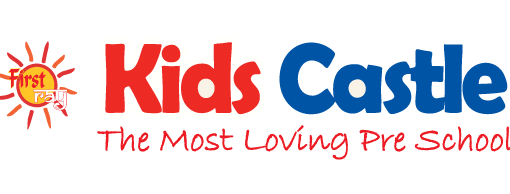Parenting preschoolers can be enjoyable and challenging, and how parents approach preschoolers typically depends on their family dynamics. In nuclear families, parents hold all the responsibilities, giving them more control but also making them feel overwhelmed at times.
However, in joint families, which include grandparents, uncles, aunts, and cousins, the family provides lots of support, shared obligations, and affection for the child. It might mean that parents should find a balance between different opinions and parenting approaches.
First, let us understand what nuclear family parenting and joint family parenting are.
Nuclear Family Parenting
A nuclear family is a small family unit with only the parents (mother and father) and their children living in the same house. Nuclear Family Parents have primary responsibility for their children’s upbringing. They make judgments and build behaviours that represent their ideas without having local extended relatives. This approach develops independence and allows for focused attention on the child’s development, yet it can be challenging at times because all caring falls exclusively on the parents.
Joint Family Parenting
A joint family is a large family in which two to three generations live in the same house. This group includes grandparents, parents, uncles, aunts, cousins, and children. Usually, the eldest male member is the head of the family. In a joint family, earnings are pooled, and the head of the family mostly manages expenses. Responsibilities are shared, and all the members are expected to contribute to supporting each other.
The joint family provides financial support and creates a nurturing environment where everyone may guide and support the child. Most of the elders may also discipline the child.
The Importance of Joint Family Parenting
While raising preschoolers in a joint family structure brings the joy of togetherness, shared values, and collaborative care, the parents may need to adjust to the family’s opinions and may not have complete authority over the child’s upbringing.
How does one balance these roles to raise happy and confident preschoolers?
Here are six helpful recommendations for Indian parents raising preschoolers in a joint family.
1.Define clear Roles and Responsibilities.
In joint families, multiple people naturally share the responsibility of a child. Assigning specific tasks to each family member may help avoid overlapping and confusion. For instance, Grandparents might handle storytelling at night, whereas parents focus on education and outside activities. Defining roles makes things easier and gives your preschooler a sense of security and organization.
2.Effective communication
Effective communication is an essential key to a happy joint family. Keep everyone updated on the preschooler’s habits, needs, and any new adjustments to their schedule. Family meetings or casual chats over dinner might help keep everyone informed and avoid misunderstandings. Set up monthly family check-ins to discuss the child’s development, concerns, and updates from the school.
3.Find common ground in parenting approaches.
Each generation may have different beliefs about parenting children in a joint family. Grandparents often adopt traditional beliefs and a disciplining approach eg. spare the rod, spoil the child kind of an approach, whereas parents may prefer more modern methods. As mentioned above, embracing both techniques can result in a well-rounded upbringing for your child. Understanding and valuing each family member’s approach allows you to collaborate and create a nurturing environment.
You can read the blog on Grandparents’ Role in Early Childhood Education – https://kidscastlepreschool.com/grandparents-role-in-early-childhood-education/
4.Promote Culture and Interconnected Engagement
Interconnected bonding and multiculturalism are two benefits of living with a joint family. Engage your preschoolers in customs, holidays, or primary family customs to help them understand and imbibe the family traditions. Your preschooler learns about heritage and family values from these shared events, which can create lovely memories.
5.Establish Routines with Practical Tools
Consistency is essential for preschoolers, especially those living in a large family. Use a family calendar to plan mealtimes, bedtimes, and playtime routines. Set clear boundaries for screen time for your child to follow and keep everyone posted so your child receives a consistent message.
Create visual charts or checklists for everyday activities so your preschooler understands what to expect. This strategy will promote both discipline and safety. It also ensures that all family members are on the same page, eliminating confusing signals to your child.
6.Encourage a Feeling of Safety and Trust
For preschoolers, joint families provide care and affection, creating a place where they feel safe and loved. Your child will develop strong relationships and acquire necessary social skills like cooperation, sharing, and empathy when they have several caregivers,. Your child is expected to fulfill some minor duties. These early teachings help in their development into self-assured, well-rounded people.
Conclusion
Parenting in a joint family establishes a strong foundation of love, tradition, and mutual support. It is a dynamic combination of contemporary insights and timeless ideals that turns children into self-assured, caring persons. By encouraging family collaboration and understanding, you create a nurturing environment where children may succeed.
At Kids Castle Preschool, we build on this mindset by providing education that compliments family values, ensuring that your child’s development is meaningful and well-rounded.
Let us work together to shape a future based on connection, history, and infinite potential. Follow Kids Castle Preschool for more parenting tips and insights!

